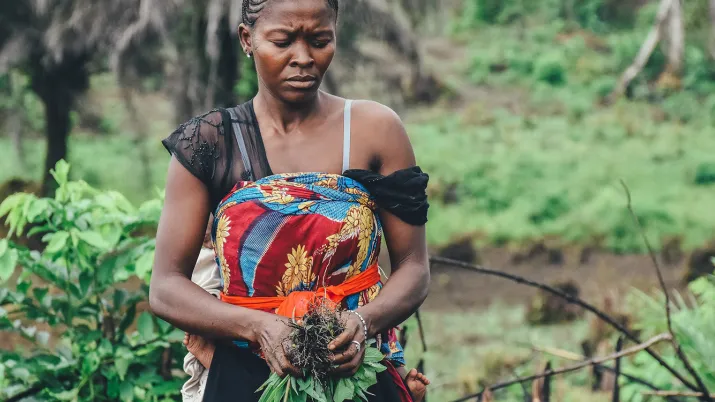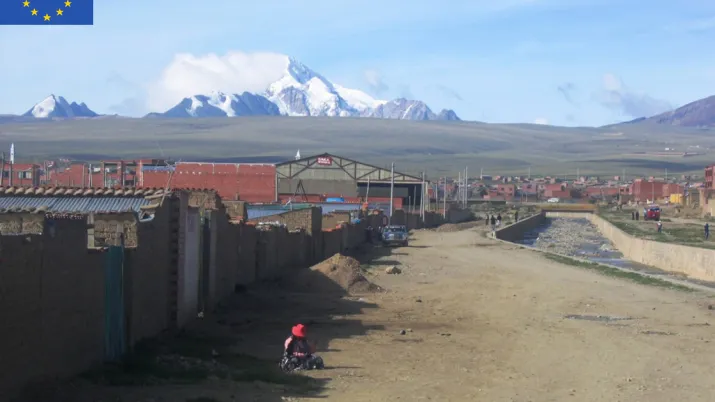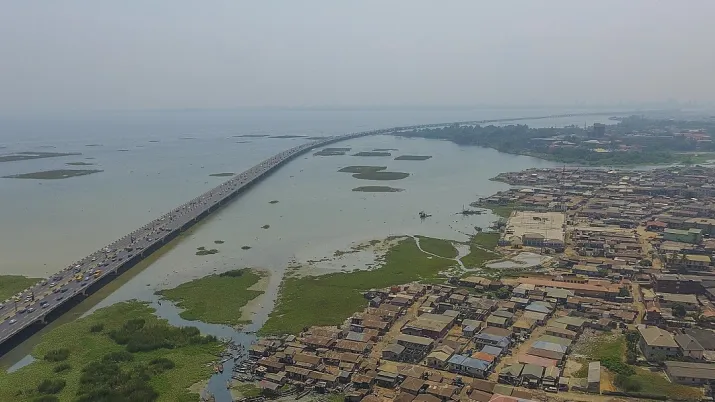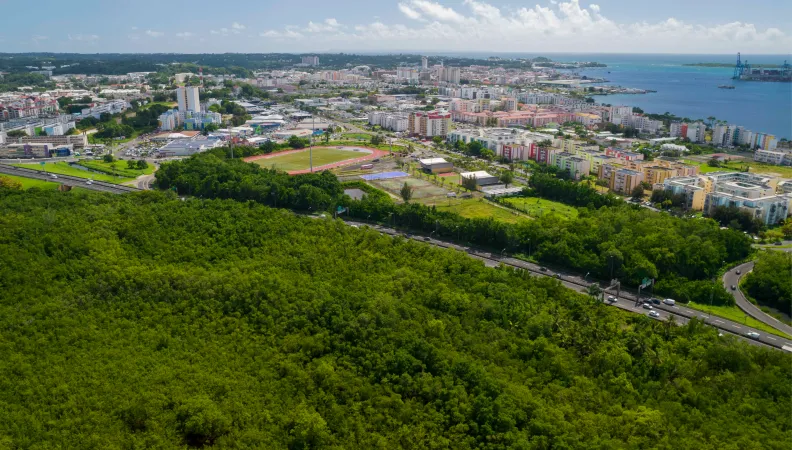 The CEROM (Comptes économiques rapides pour l'Outre-mer - Fast Economic Accounts for Overseas France) partnership brings together complementary expertise from the French National Institute of Statistics and Economic Studies (INSEE), the Monetary Issuing Institutes (IEOM/IEDOM) and Agence Française de Développement (AFD) to strengthen existing statistical information on French Overseas Territories, and, above all, to better promote it. After 20 years of existence, CEROM's work is widely known in French Overseas Territories and provides valuable support for the management of public policies.
The CEROM (Comptes économiques rapides pour l'Outre-mer - Fast Economic Accounts for Overseas France) partnership brings together complementary expertise from the French National Institute of Statistics and Economic Studies (INSEE), the Monetary Issuing Institutes (IEOM/IEDOM) and Agence Française de Développement (AFD) to strengthen existing statistical information on French Overseas Territories, and, above all, to better promote it. After 20 years of existence, CEROM's work is widely known in French Overseas Territories and provides valuable support for the management of public policies.
Context
In the early 2000s, economists and statisticians from the institutions that are part of the CEROM project realized that important and high-quality statistical information on Overseas Territories existed, but that it was relatively unknown and under-exploited.
The first priority of the partnership has been to produce rapid economic accounts. The economic accounts of year n are now available in the second half of year n+1, while, before, they were only available in year n+3. Having this information earlier facilitates the analysis and economic management of the territories concerned.
Goal
The CEROM partnership aims to improve the economic information and macroeconomic analysis capacity of the French Overseas Territories, notably through:
- The construction of economic models adapted to these territories, allowing the production of rapid accounts on the basis of existing economic accounting;
- The development of cyclical indicators giving a quick overview of economic developments;
- The promotion of economic analysis of overseas collectivities and territories, by exploiting untapped data and in order to make this analysis accessible to the greatest number (production of macroeconomic balance sheets, short-term or thematic studies);
- The construction of a peers network to exchange good practices and compare methods;
- Strengthening the quality of the economic information system by bringing together statisticians, economists and users of economic data.
This partnership has also made it possible to measure for the first time the GDP of certain overseas collectivities and to produce a fine analysis of the corporate fabrics of several territories.
Method
The CEROM partnership derives from a framework agreement renewed since 2005 between the partner institutions. This agreement sets out the objectives and modalities for implementing the partnership.
The partnership is managed by partner institutions at headquarters level, and is represented locally through their offices in seven overseas territories: the five overseas departments, French Polynesia and New Caledonia. The partnership also covers other overseas communities: Wallis and Futuna, Saint-Pierre and Miquelon, Saint-Martin and Saint-Barthélemy.
The scope of the CEROM partnership is the production of economic information and databases enabling the monitoring of overseas economies, analysis and perspective of existing macroeconomic information.
Partner institutions produce economic statistics and analyses to inform public policies. The evaluation of public policies or projects, the development of programmes and development strategies have so far been beyond the scope of CEROM’s work.
Results
Partner institutions of CEROM work together on:
- The production and publication of economic studies (macroeconomic reports, sectoral studies, etc.);
- The construction of rapid economic accounts;
- The development of cyclical dashboards.
Publications from the partnership can be found on the CEROM website (in French).
In addition, every two to three years, AFD organizes with its partners a conference devoted to socio-economic or environmental issues in Oversees France. The seventh edition of these conferences was held on October 13, 2022, and dedicated to the following theme: Overseas Territories in transitions, challenges and visions of the future.
Lessons learned
Confirming the initial diagnosis that motivated its launch, the CEROM partnership shows that important statistical socio-economic information exists in the Overseas Territories, but that it was and still remains insufficiently mobilized, especially in academic circles. The use of available statistical data sources has enabled many studies to be produced over the last twenty years. However, this work presupposes taking into account the specificities and sometimes the limits of the different data sources, whether they come from INSEE, the departmental statistical services or the monetary issuing institutes.
Contacts
- Bertrand Savoye, research officer, AFD
- Stéphanie Margot, Head of the Strategy and Transversal Support Unit, Three Oceans Department, AFD
Discover other research projects
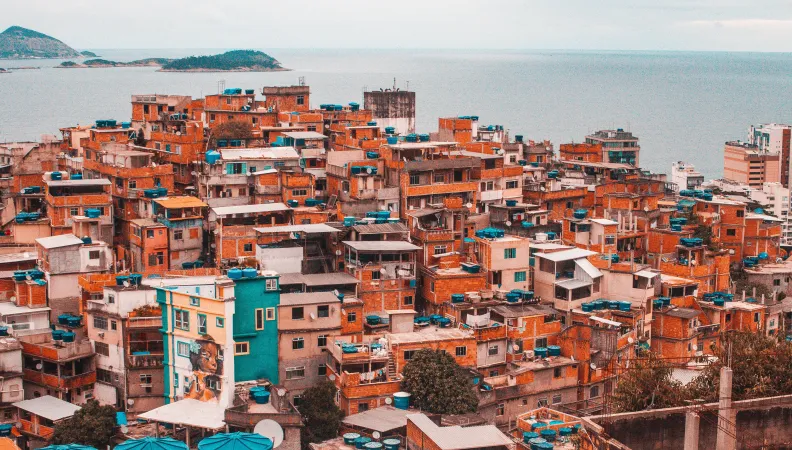 This research project focused on collective arrangements for access to land and housing in developing cities that are linked with the concept of commons. It studied the implementation of some collective forms of land use in developing cities and their effects, particularly in terms of access to land and housing, reduction of urban inequalities and social inclusion.
This research project focused on collective arrangements for access to land and housing in developing cities that are linked with the concept of commons. It studied the implementation of some collective forms of land use in developing cities and their effects, particularly in terms of access to land and housing, reduction of urban inequalities and social inclusion.
Context
Despite a renewed interest for the notion of “commons” within the academic world, little work has been done about land and housing issues in cities of the Global South.
Yet access to urban land is a major issue for dwellers of these rapidly growing cities and a determining factor for the improvement of their living conditions and for their access to “adequate housing”, according to UN terminology. The mainstream approach to urban land tenure, based on full individual private ownership and the free market, generates speculation and land grabbing, and exclusion of the most precarious households.
The critical dimension of the commons notion opens up innovative ways to produce housing in the Global South, according to plural perspectives that take into consideration the inhabitant’s needs and their agency abilities.
Goal
This research project aimed to highlight the diversity of hybrid, permeable, evolving commons within space and time. These commons aim at getting and securing access rights to land and housing and associated services, which often arise from unexpected opportunities.
The research team looked at innovative ways of holding land: commonly held, with a housing function and in a nonspeculative perspective (when the transfer of land is carried out according to a framework decided beforehand by a community, without any capital benefit).
Method
The methodology was based on case studies in developing cities:
- The first phase of the study (2017-2018) led to three field surveys in Burkina Faso, Kenya and India.
- The second phase (2018-2020) consisted of two additional field surveys (Brazil, Mexico), as well as the follow-up of the work carried out in New Caledonia by students in the framework of the School of Urban Affairs (Master’s Degree « Urban Planning Cycle») of Sciences Po Paris.
The team consisted of:
- An academic with authorization to supervise research (HDR), who directed the study;
- A research engineer, who provided the scientific coordination of the study;
- Local researchers specialising in land and urban issues in survey countries.
The study consisted of five phases: documentary research, field research, data processing, drafting of deliverables, valorisation of research findings.
Results
This research project resulted in the publication of several research papers:
- “Land-based commons for inclusive cities” (available in French): this research paper presents the conclusions of 8 case studies, focused on securing popular habitat through shared ownership of the land.
- “Does Mexico’s social land still bear commons?” (available in French): Mexican common land has undergone major transformations since the 1990s. This research paper presents the study on the outskirts of the metropolitan area of Mexico City led by the students of the Urban Planning Programme of Sciences Po Paris, under the supervision of Jean-François Valette.
- “Regularizing Rio favelas through land pooling?”: the paper sheds light on an original system of collective land regularization in precarious neighborhoods, which puts into practice the notion of “plural property” running through Brazilian law, and which defends the right of the inhabitants to remain in place.
- “User cooperatives in Uruguay: the challenge of housing as common” (available in Spanish)
The final report of the research project on urban land-based commons for housing in the Global South can be downloaded here.
All the publications and events related to the research project are listed on the following website: Communs fonciers pour l’habitat – Quelle contribution à l’inclusion urbaine dans les Suds ? (hypotheses.org)
Lessons learned
"The commons can be understood as a social policy of housing, offering access to housing to the most vulnerable social categories. Moreover, they can provide an alternative path to classical public housing policies which favor individual private property. Indeed, even though these initiatives emerge from dwellers organizations, they might be supported and framed by national governments. Often acknowledged, supported and even presented as standard to be followed, the commons have drawn increased attention recently from dwellers federations, associations, NGOs and international institutions that document their functioning and contribute to the international circulation of these alternative ideas." (Simonneau & Denis, 2021)
Contacts
- Claire Simonneau, professor and researcher at Université Gustave Eiffel and researcher at the Laboratoire Techniques, territoires et sociétés (LATTS)
- Stéphanie Leyronas, research officier at AFD



